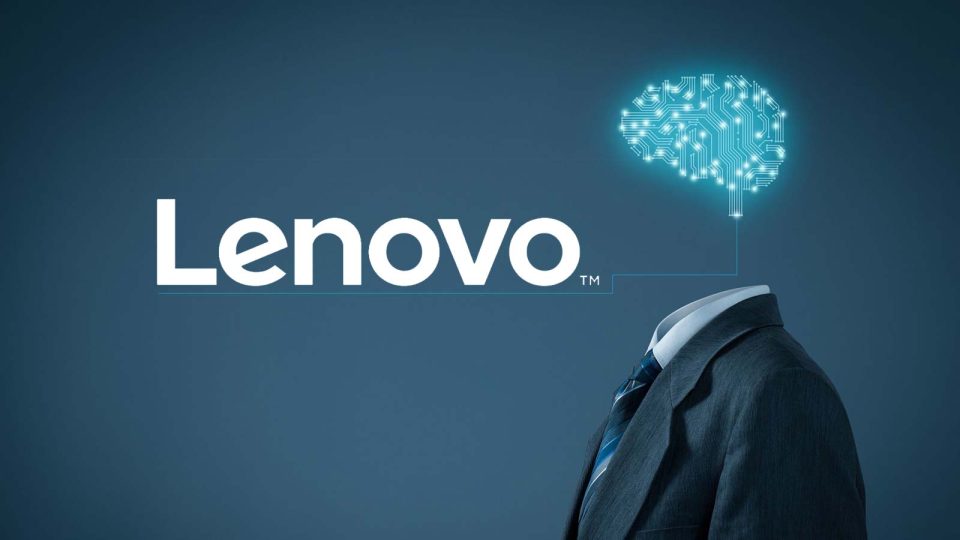Lenovo, in partnership with Intel, introduces cutting-edge infrastructure solutions powered by 5th Gen Intel Xeon processors. These solutions cater to organizations of all sizes, facilitating the acceleration of their AI initiatives and enhancing business outcomes. As the demand for a hybrid mix of personal, private, and public AI grows in organizations, Lenovo and Intel’s collaborative efforts focus on delivering purpose-built solutions tailored specifically for AI inferencing applications.
By reducing processing requirements and lowering entry barriers, organizations can leverage AI inferencing across various applications, from local to cloud-based deployments. AI inferencing involves using pre-trained models on new proprietary datasets, resulting in tailored insights and experiences with significantly reduced processing demands compared to initial training phases.
Also Read: Google Cloud NGFW Enterprise: Now Available to the Public
Finding Generative AI Potential Through Infrastructure Extension
Extending existing infrastructure is key to embarking on the journey of Generative AI. This transformative technology promises to revolutionize various business facets, including customer experience, operations, and employee engagement. However, initiating this journey can pose challenges.
Research conducted jointly by Intel and Lenovo highlights the efficacy of Lenovo ThinkSystem SR650 V3, powered by 4th or 5th Gen Intel Xeon processors, in driving significant business impacts without needing dedicated GPU accelerators, which can be costly and specialized.
Studies demonstrate the prowess of single-node SR650 V3 setups with 4th Gen Intel Xeon processors, delivering scalable solutions for Generative AI applications. Moreover, clusters of SR650 V3s equipped with 5th Gen Intel Xeon processors offer highly performant solutions, with response times perceived as instantaneous, facilitating real-time applications like chatbots.
Leveraging Red Hat OpenShift container platform for deployment ensures ease, usability, and scalability, with hardware acceleration support for inference use cases. These solutions, tested across various batch sizes and token lengths, consistently meet response time targets, making them suitable for real-time applications such as chatbots.
Understand How AI Transforms Industries: From Retail to Manufacturing to Food Service
Retail Optimization Through AI Insights
Partnering with Intel and Sensormatic Solutions, Lenovo introduces computer vision technologies tailored for retailers. Leveraging Lenovo ThinkEdge servers with Intel Xeon processors, these solutions enable real-time analytics at the edge, fostering frictionless and personalized shopping experiences. By analyzing customer behavior, including optimizing merchandise placement and detecting suspicious activities, retailers can mitigate risks, enhance labor efficiency, and drive sales.
Manufacturing Efficiency Enhanced with AI
Amidst the demands for heightened efficiency and product quality in manufacturing, Lenovo, Intel, and byteLake collaborated to develop an AI-assisted Visual Inspection Solution. This innovative tool utilizes Lenovo ThinkEdge servers, Intel Distribution of the OpenVINO toolkit, and byteLAKE technologies to offer predictive maintenance and process monitoring enhancements. With up to 93% prediction accuracy, manufacturers can optimize operations and transform their businesses.
AI Streamlining Food Service Operations
Lenovo and Intel, in partnership with Sunlight.io, deliver a streamlined solution for quick-service restaurants. This Edge AI solution reduces hardware complexity while accelerating digital transformation by consolidating infrastructure and leveraging Lenovo ThinkEdge and ThinkSystem servers with Intel CPUs. With simplified deployment of AI-based applications like multichannel ordering and video analytics, restaurants can enhance efficiency in ordering and fulfillment processes, ultimately driving innovation and cost reduction.
Also Read: Updates on Intel’s Confidential Computing with Cohesity Data Cloud Integration
FAQs
1. What are the key features of Lenovo and Intel’s infrastructure solutions powered by 5th Gen Intel Xeon processors?
These solutions cater to organizations of all sizes, facilitating the acceleration of AI initiatives and enhancing business outcomes. They offer powerful, scalable, and energy-efficient infrastructure tailored specifically for AI inferencing applications.
2. How do these solutions address organizations’ growing demand for a hybrid mix of personal, private, and public AI?
By reducing processing requirements and lowering entry barriers, organizations can leverage AI inferencing across various applications, from local to cloud-based deployments. This allows for the seamless integration of AI into different business operations.
3. What is AI inferencing, and how does it differ from initial AI training phases?
AI inferencing involves using pre-trained models on new proprietary datasets to generate tailored insights and experiences with significantly reduced processing demands compared to initial training phases. It focuses on applying existing knowledge to new data rather than building new models from scratch.
4. How does extending existing infrastructure facilitate the adoption of Generative AI?
Extending existing infrastructure provides a foundation for implementing Generative AI, which has the potential to revolutionize various business facets such as customer experience, operations, and employee engagement. It enables organizations to leverage advanced AI capabilities without the need for dedicated GPU accelerators, thus reducing costs and complexity.
5. What research findings support the efficacy of Lenovo ThinkSystem SR650 V3 in driving business impacts for Generative AI applications?
Research conducted jointly by Intel and Lenovo showcases the effectiveness of Lenovo ThinkSystem SR650 V3, powered by 4th or 5th Gen Intel Xeon processors, in delivering scalable solutions for Generative AI applications. Studies demonstrate the performance of both single-node and clustered configurations in facilitating real-time applications like chatbots.
6. How does leveraging Red Hat OpenShift container platform contribute to the deployment of AI solutions?
Utilizing the Red Hat OpenShift container platform ensures ease, usability, and scalability in deploying AI solutions, with hardware acceleration support for inference use cases. This platform enables organizations to efficiently manage containers and services, facilitating the seamless deployment of AI applications across various environments.
[To share your insights with us as part of editorial or sponsored content, please write to sghosh@martechseries.com]


